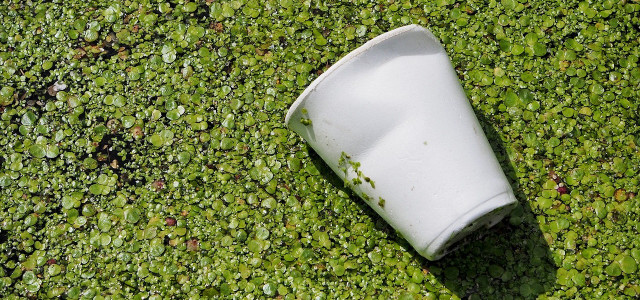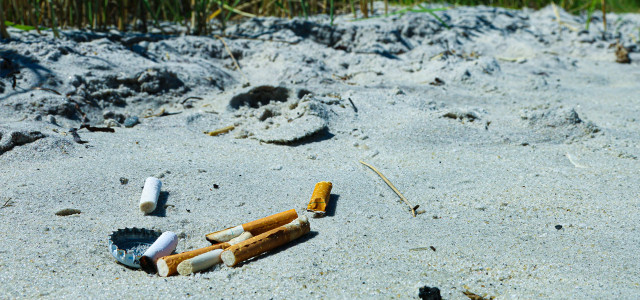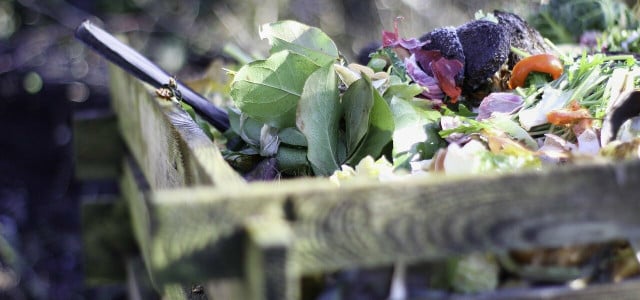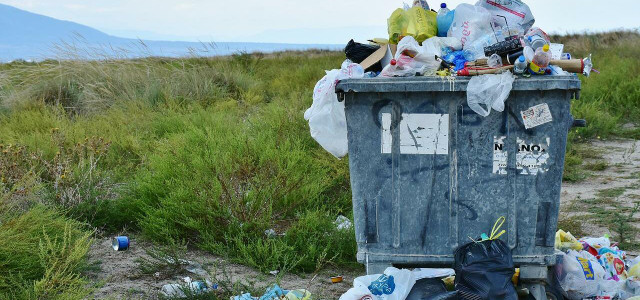Explore the critical differences between biodegradable vs. compostable materials, and learn why this distinction matters to recycling, our environment and future sustainability!
In our quest for a more sustainable future, terms like “biodegradable” and “compostable” are often thrown around. While they may seem interchangeable, the distinction between them is essential. In this article, we will explore the differences between biodegradable vs. compostable, highlight common materials and look at the time decomposition and biodegradation take to complete. We’ll also examine why compostables should not be recycled and what else to remember.
What Does Biodegradable Mean?
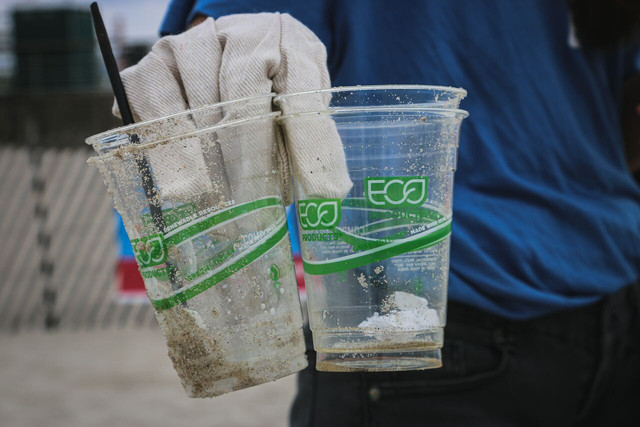
Biodegradable products and materials have the ability to break down and decompose into their base components over time. Bacteria, fungi or enzymes typically facilitate this decomposition process. The term “biodegradable” usually refers to those materials and products that biodegrade within a few months.
Biodegradability is not regulated. Technically, every material is biodegradable, given enough time. Even plastics biodegrade; however, they will take centuries to do so and shed harmful microplastics and other toxins in the process. That is why labeling a product as biodegradable can be somewhat misleading and confusing to consumers.
For more information, check out What Does Biodegradable Really Mean?
Decomposition Time for Biodegradable Products
Ideally, biodegradable materials decompose within a few months. Unfortunately, that isn’t the case for every material advertised as biodegradable. The time something takes to break down varies depending on its composition, environmental conditions and microbial activity. For instance, paper is usually biodegradable and can decompose within a few weeks, while wood can take several years. Cotton garments can break down in a few months to a few years, depending on fiber density and processing. Meanwhile, biodegradable plastics usually decompose in three to six months.
Biodegradable vs. Compostable: How to Identify Biodegradable Products
To determine if a product is biodegradable, look for certifications or labels that indicate compliance with established standards. These may include credentials like “ASTM D6400,” which validates the biodegradability of packaging materials.
What Does Compostable Mean?
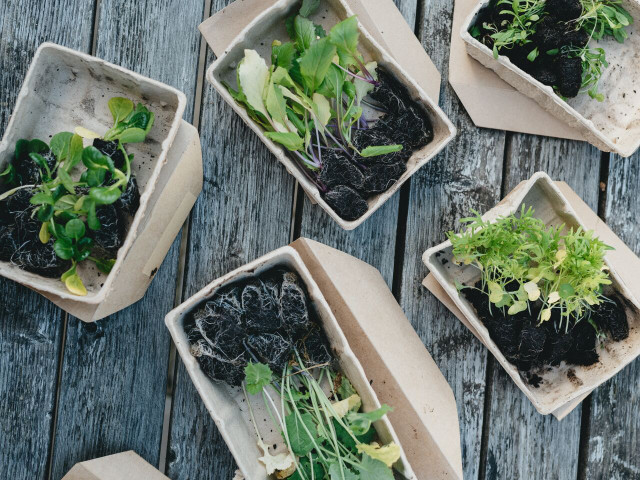


First, remember that everything compostable is also biodegradable. However, it doesn’t necessarily work the other way around. There are more requirements for a product to be compostable than for it to be biodegradable.
Compostable products are made from bio-based materials such as cornstarch, potato starch, sugarcane and so on. While biodegrading is a natural process, composting requires human intervention. Composting is a controlled process that converts organic matter into nutrient-rich compost. Microorganisms break down products into humus, a stable substance that can be used to improve soil fertility.
Interested in learning more? Read How Does Composting Work? A Step-By-Step Guide.
Products need particular environments to decompose, such as warm temperatures, moisture, nutrients and oxygen. Composting breaks products into their basic parts (water, carbon dioxide and biomass) and releases no harmful residue. Moreover, the term “compostable” is regulated and mandates strict testing to ensure that compostable materials do not contain harmful chemicals and that products decompose within a specific time.
Wondering what you can and can’t compost? Here are some common compostable materials:
- Food Scraps: Fruit and vegetable peels, coffee grounds and eggshells are compostable. Avoiding food waste is one of the many benefits of composting.
- Yard Waste: Composting grass clippings, leaves and small branches makes lawn management more sustainable.
- Compostable Plastics: Some bioplastics, like polylactic acid (PLA), can be composted in industrial composting facilities. Keep in mind that PLA composting only works in facilities with specific environments, and throwing it into your home compost won’t allow it to break down properly.
- Plant-Based Packaging: Packaging from plant-based materials, such as cornstarch or bagasse, can be composted.
- Paper: Napkins, paper towels and paper plates are compostable, but only if uncoated and not used with chemical cleaners.
Decomposition Time for Compostable Materials
The time required for compostable materials to decompose also depends on composition, size and the composting conditions. It is crucial to distinguish between regular residential composting and industrial composting. The latter uses grinders, chippers, optimal moisture and specific temperatures to compost more complex products.
In industrial composting facilities, items usually break down within a few months. However, home composting may take longer due to different temperatures and microbial activity. Generally, 90% of compostable products degrade within 180 days when placed in a compost environment.
Biodegradable vs. Compostable: How to Identify Compostable Products
Similar to identifying biodegradable products, look for specific certifications and labels to determine if something is compostable. Check for certifications such as “BPI Certified Compostable” or US industrial composting standards ASTM D6400 (see above) and ASTM D6868.
The Role of Recycling
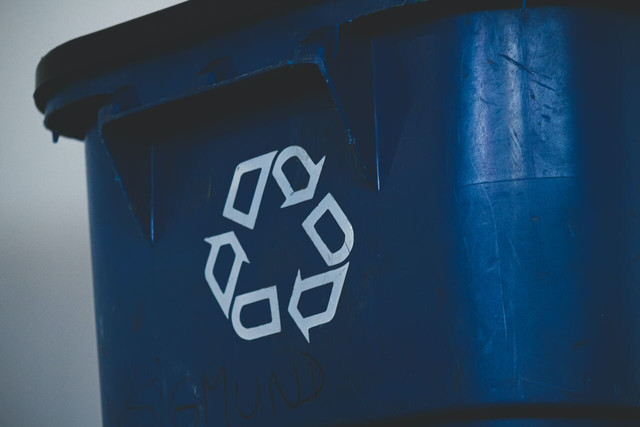


Recycling plays a crucial role in waste management and sustainability. While recycling focuses on transforming materials into new products, it is not always suitable for biodegradable or compostable items. In fact, introducing biodegradable or compostable materials into recycling streams can cause contamination and hinder the recycling process.
For example, although biodegradable and compostable plastics are technically recyclable, they are currently not recycled back into plastic products, meaning there is no closed-loop recycling. When collected together, they are treated as an impurity in the recycling of conventional plastics. So: don’t throw compostable and biodegradable products into the recycling bin.
We should always do our best to dispose of compostable and biodegradable products correctly. Don’t throw them in the regular trash, thinking they will decompose in landfills. Compostables (including biodegradable materials) can only degrade with the right amount of oxygen and light — not buried beneath tons of other trash. So, either use them for your home compost or send them to a composting facility. Ultimately, it is important to follow proper disposal guidelines from local waste management authorities.
Biodegradable vs. Compostable: What’s the Verdict?
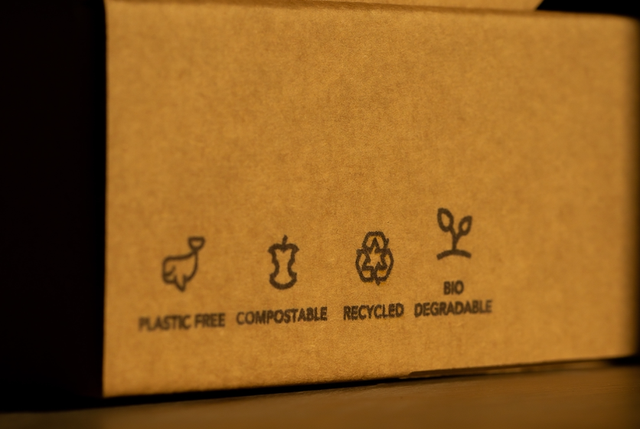


Understanding the difference between biodegradable vs. compostable is essential for making informed choices and working toward a greener future. While biodegradable items naturally break down over time, compostable materials can be transformed into nutrient-rich compost through a controlled process. Instead of leaving harmful residue like biodegrading does, composting benefits the environment by adding nutrients to the soil.
Opting for biodegradable or compostable alternatives and ensuring proper disposal helps you live a more sustainable lifestyle. However, composting does require energy, and biodegrading can shed harmful toxins into the soil. As so often with matters of sustainability, there is no one-fits-all solution. But choosing compostable and biodegradable products is probably one of the better options after reusable products or precycling.
Read more:
- Seed Bombs, Flower Bombs & Green Grenades: DIY Step-by-Step
- What Is Upcycling and How Is It Different From Recycling?
- Where & How to Recycle Laptops and Why It’s So Important
Do you like this post?






